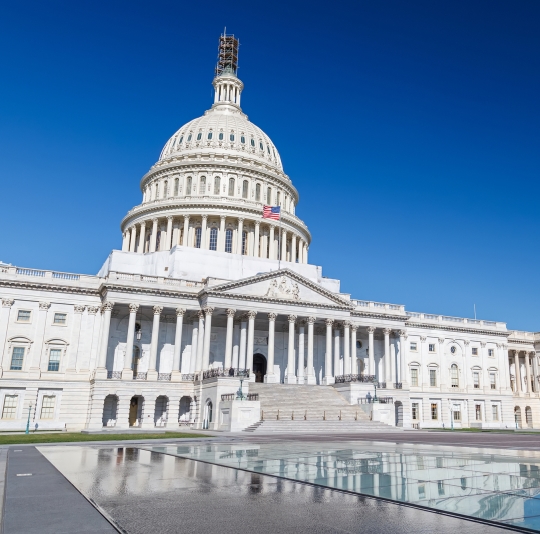Press Releases
Wexton Introduces Bipartisan Legislation to Reform Statutes of Limitations Laws for Child Sex Abuse Crimes
Washington,
July 29, 2021
Washington, DC -- Today, Congresswoman Jennifer Wexton (D-VA) and Congresswoman María Elvira Salazar (R-FL) introduced the bipartisan Statutes of Limitations for Child Sexual Abuse Reform Act to incentivize states to eliminate their statues of limitations laws for child sexual abuse, exploitation, and sex trafficking and allow for the revival of previously time-barred civil claims for such crimes. The legislation would make additional grants available to states that receive Child Abuse Prevention and Treatment Act (CAPTA) funding if the state meets the reforms standards laid out in the bill. “As a former prosecutor and advocate for abused children, I know that our justice system does not work for all survivors of child sex crimes,” said Congresswoman Jennifer Wexton. “The trauma experienced by victims of child sexual abuse, exploitation, and trafficking stays with them for a lifetime, and arbitrary statutes of limitations block many from getting the justice they deserve when they are ready to bring those claims to court. I’m proud to partner with Rep. Salazar on the bipartisan Statutes of Limitations for Child Sexual Abuse Reform Act, which will encourage states to eliminate these statutes of limitations and allow survivors to seek justice.” “Victims of child sexual abuse, exploitation, and sex trafficking have gone through unspeakable tragedies. We must have zero tolerance for the perpetrators of these heinous crimes,” said Rep. Salazar. “I am proud to introduce this vital legislation with Congresswoman Wexton to ensure that the vile humans who take advantage of the most vulnerable do not get away unpunished.” Around 1 in 5 girls and 1 in 13 boys suffer child sexual abuse. However, it is estimated that 90% of child victims never report their abuse to authorities and the vast majority of claims expire before the victims are ready and able to take their case to court. In nearly every state across the country, current statutes of limitations (SOL) laws are making it more difficult and even impossible for child sex abuse victims to seek the justice that they deserve. The trauma that victims of child sexual abuse, exploitation, and trafficking face at such a formative age can stay with them for years, affecting their long-term physical, mental, and behavioral health. Because of this trauma, many victims do not report the abuse they suffered until a much later age -- 52 years old on average. Forty-eight states and the District of Columbia have enacted some statute of limitations reforms in the past two decades. Yet, only a small handful have fully eliminated statutes of limitations for criminal and civil child sex abuse, exploitation, and trafficking cases as well as allowed for the revival of time-barred claims. The bipartisan Statutes of Limitations for Child Sexual Abuse Reform Act authorizes $20 million in grants for states who achieve these reforms to allow survivors to seek justice on their own time without arbitrary barriers. “Child sex abuse remains a rampant national epidemic with at least 1 in 5 girls and 1 in 13 boys in the United States sexually assaulted before they turn 18. The Statutes of Limitations for Child Sexual Abuse Reform Act would be a major step forward at the federal level to establish a national standard for abuse survivors to seek justice by incentivizing states across the country to reform their restrictive statutes of limitations that continue to protect sexual predators and responsible institutions in our communities,” said Marci Hamilton, founder and CEO of CHILD USA. “Many states have dramatically improved their SOLs, and they deserve credit for that. But too many are dragging their feet. It's time for Congress to incentivize the states to do the right thing to make sure that every survivor regardless of where they were abused can get access to justice. SOL reform not only levels the playing field for the victims, but it also serves the public's need to know who is endangering our children. We are grateful to Representative Wexton for her leadership on this issue and look forward to working with her and other members of Congress to get this bill swiftly signed into law.” “For a person to report sexual abuse they experienced as a child, that person must overcome the fear of their abusers, the psychological and emotional impact of society’s failure to protect them, and the social stigma still associated with sexual abuse. It’s just not reasonable to impose a limit on how long that can take. This is why it’s critical that states reform statutes of limitations laws,” said Bob Cunningham, CEO, International Center for Missing and Exploited Children. The full text of the Statutes of Limitations for Child Sexual Abuse Reform Act can be found here. ### |



